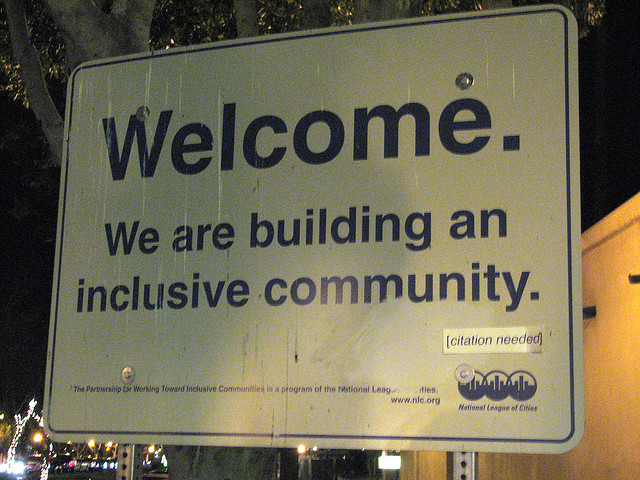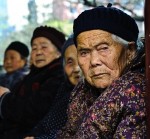The differential treatment of parents based on their marital status has once more come under the spotlight. In response to parliamentary discussions, two Cabinet Ministers have recently reiterated that the state’s approach—of providing more benefits to married than unmarried parents—is justified by “societal norms”. But the negative impact of this discrimination on social belonging deserves more scrutiny.
Caregiving is tough work. People whose lives involve significant everyday childcare will understand that it is difficult to raise children in the best of circumstances. Those who have to do it alone—occasionally or for extended periods—know that though it is potentially rewarding, it is also work that can be immensely lonely and stressful.
Sociologists and psychologists have documented the multiple ways in which people with young children experience stress. Studies also illuminate the particular challenges of raising children as single parents.
It should be obvious that—in comparison to those who have the support of another adult in the household—single parents and their children are likely to require more of our support, rather than less.
Yet, puzzlingly, rather than receiving additional support to meet these challenges, single parents in Singapore face discrimination in ways that have significant negative impact on their ability to meet needs. Single mothers have access to significantly less paid maternity leave (and no access at all to public support of paid leave since employers alone bear the cost); no access to Baby Bonuses, including the co-savings component known as the Child Development Account; and less access to various tax reliefs.
While these differentiations are defended as necessary to support childraising in the context of marriage, it is unclear how excluding single parents and their children fosters a more positive environment for those in marriages.
This is not a narrow issue concerning just a minority. The differential and inferior level of public support for single parents is something everyone in Singapore should care about and speak up against. Two reasons stand out.
First, all children grow up to be members of our society. Their wellbeing or lack thereof has long-term consequences for us all. This is the rationale underlying social support for parents, and educational opportunities for all children. Absent of this principle, people who are not parents should revolt at this way of spending their tax dollars. In other words, what is at stake when we support children is the greater societal good, and not just individual interests and wellbeing.
A society that aspires to be inclusive and meritocratic should strive to ensure that all children begin with the same level of social support and opportunities. In the early years of a person’s life, this support is necessarily about supporting his or her parents and caregivers.
Precisely because we value all future members of society, regardless of the circumstances of their birth, we must ensure that children of single parents—raising them under more difficult conditions—are protected and enabled in ways that allow them to thrive in and eventually contribute to our society in ways no different from children of two-parent families.
This is sensible from the point of view of the future of Singapore society. Moreover, given our espousal of the principles of inclusivity, meritocracy and equal opportunity, this tangible support is an important example of walking the talk.
Second, public policies that differentiate and discriminate show us that our membership in this society, and the support we should expect from it, is not based on a recognition of our equal fundamental humanity, but rather conditional on our “good” behavior—and thus, ultimately, tenuous.
This is the sort of relationship we might expect to have with our employers—where we do certain jobs in return for specified pay. In the event that either side fails to do their part in the exchange, there is exit. Neither owes the other anything.
Countries are not corporations, and citizenship is not salary.
To build a society that lives up to the founding ideals of one united people—in the words of the pledge, a democratic society built on justice and equality—we need to cultivate relationships of mutual obligations between state and society, as well as among all members of society.
This requires policies that allow us to experience that we are all worthy of support and obligated to contribute—no matter our individual circumstances and how they may change over time, and despite diversity in our viewpoints and practices.
Everyone should feel valued and supported by society, in good times and bad. Public policies that differentiate and divide, that send the signal that our membership is conditional and can be revoked, hurt us all.
This year, as we celebrate 50 years of being a nation, we should strive to be a society that values all its members. We need to scrutinize our public policies and rethink how they can bring value not only to us as individuals, but how they might foster an environment in which we appreciate our mutual obligations to one another.
Teo You Yenn is a board member at the Association of Women for Action and Research (AWARE), Associate Professor in Sociology at the Nanyang Technological University, and author of the book Neoliberal Morality in Singapore: How family policies make state and society (Routledge, 2011).










 Pre-abortion counselling should facilitate patients’ choices, rather than seek to influence them, and provide scientifically sound and accurate information, as well as non-judgmental support.
Pre-abortion counselling should facilitate patients’ choices, rather than seek to influence them, and provide scientifically sound and accurate information, as well as non-judgmental support.